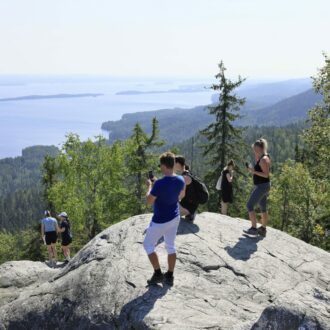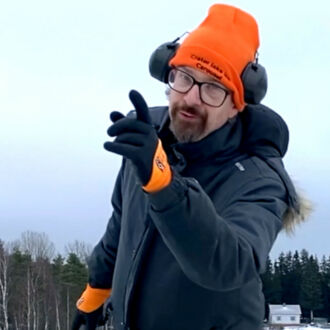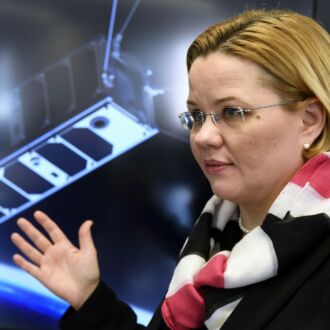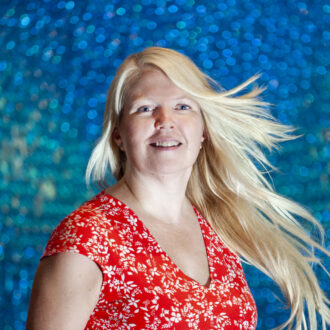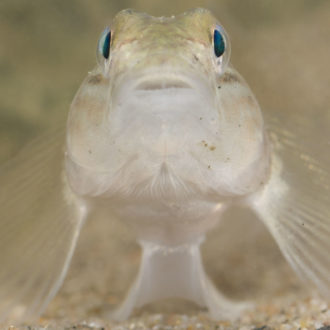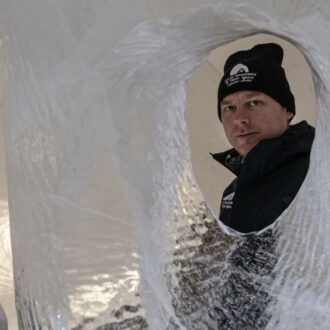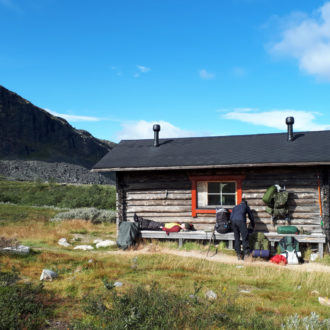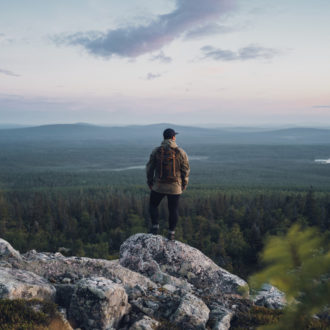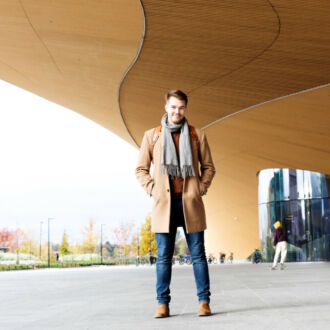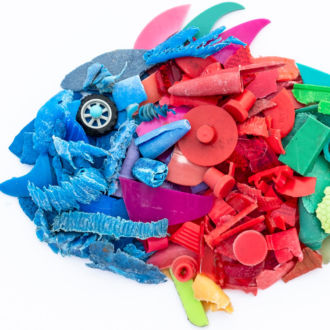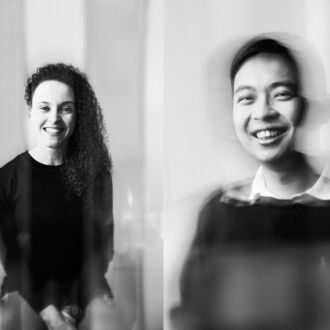The Arctic Centre is Finland’s leading Arctic institute, operated by the University of Lapland in Rovaniemi, just below the Arctic Circle. It is located in the Arktikum building, a local landmark that also houses a science centre and museum.
International cooperation has been an important principle of the Arctic Centre since its beginnings more than 30 years ago. At the time of writing, it has about 50 employees from 11 different countries. Some have permanent positions, while others are visiting for only a few months. The institute also sends people to participate in projects abroad.
Falling in love with Finnish Lapland
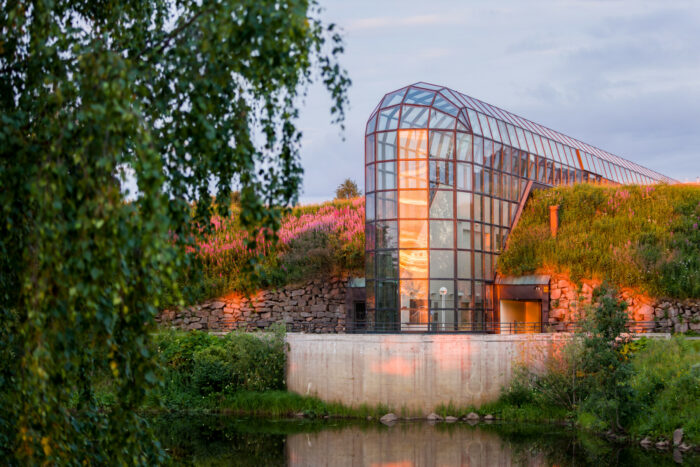
The atrium of the Arktikum building connects it with Finnish Lapland’s wide-open landscapes, which begin just outside the city limits.Photo: Matti Kantola
When Nicolas Gunslay, now director of Arktikum Science Centre exhibitions, arrived in 1997, some other international staff members were already working there. He came to do fieldwork about the identity and ethnicity revitalisation process of Arctic peoples for his PhD at Strasbourg University.
“The plan was to stay for only nine months, but really soon I realised that I didn’t want to leave,” he says.
The main reason he stayed was the good living conditions. “I really fell in love with Lapland,” says Gunslay. “When I travelled here the second time, I took everything with me: my skis, my bike, my fishing gear – I think I had almost 60 kilograms [130 pounds] of luggage.”
In his opinion, the employees and the whole Arctic Centre profit from the atmosphere of openness he has experienced there. “Every researcher coming from outside of Finland brings his or her own networks,” he says. “You gain one extra person, but a full new network.”
Full of forests – and more
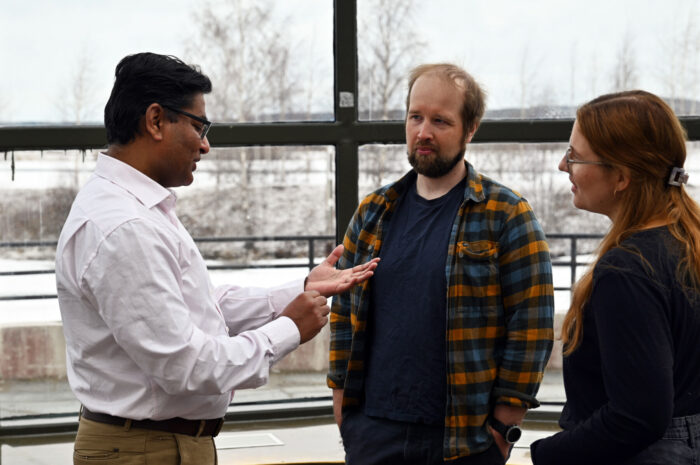
From left: Kamrul Hossain, Henri Wallen and Katharina Heinrich discuss their plans at Arktikum, where a glass atrium lets in the light and affords a view of the park outside.Photo: Lisa König
Kamrul Hossain, research professor and director of the Northern Institute of Environmental and Minority Law, came to Finland from Bangladesh in the late 1990s.
“I always had a fascination for the Nordic countries, even though I didn’t know much about them,” he says. “The only thing I knew about Finland was that it is full of forests. But my friend gave me a flyer from the University of Helsinki including this application form for an international master’s degree programme and I thought, Why not?”
He studied public international law in Helsinki. Later, he got a job in a somewhat different field: environmental and minority law. He came to Rovaniemi for a four-month position in 2007. “And I’m still here today,” he says.
“I think it is unique how international the work environment here is. We collaborate with scholars from all different countries and continents. English is the primary language at work, even for our Finnish colleagues.”
Close-up view
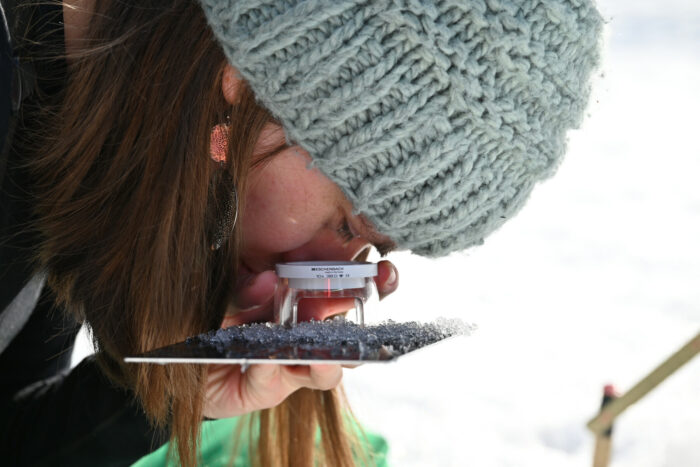
Marina Falke came to Finnish Lapland to try living in the far north and gain hands-on experience studying Arctic snow, which she says is different in structure from the Alpine snowpack.Photo: Lisa König
There are also short-term visitors, such as Marina Falke from the University of Hamburg in Germany. She came to Lapland for a few months to do snow measurements for her master’s thesis in integrated climate system sciences.
“It is the first time I have seen the Arctic snow type, and the structure is just so different from the Alpine snowpack,” she says. “My supervisor suggested a master’s topic that only included the modelling, but for me, it was important to do fieldwork and to stay in a research unit on site.
“I wanted to do this exchange to see what I am actually working with and to find out if I can picture myself working in Finland in the future.”
One thing she particularly likes at the Arctic Centre is the down-to-earth working atmosphere. “I feel like this is a place where research leaders really look at the people themselves, and not only at what they can achieve,” she says.
Doing what is really interesting
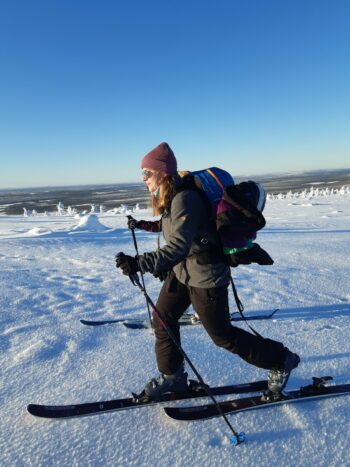
For Katharina Heinrich and other researchers living in the northern Finnish city of Rovaniemi, good skiing opportunities come with the territory.Photo courtesy of Katharina Heinrich
Junior researcher Katharina Heinrich, also from Germany, studied economics and management there, then accrued two master’s degrees in Iceland, one in polar law and one in coastal and marine management. Moving to Iceland was a great step, because “it led to me doing what I am really interested in,” she says.
It was kind of a coincidence that she ended up at the Arctic Centre in 2021. She originally contacted a research professor there when looking for a supervisor for a PhD application at the University of Lapland.
“He answered that he could be my supervisor, but also offered me a job for this project where they were looking for someone with exactly my background,” she says. “It is supercool, because I get the chance to experience research work and see if I like it before I start a PhD in that field.”
For Heinrich, it makes sense to research Arctic topics in an international team. “So many countries have an interest in the Arctic – not just the Arctic states themselves.” (The Arctic states are Finland, Sweden, Norway, Denmark, Iceland, Canada, the US and Russia.)
New ideas and perspectives
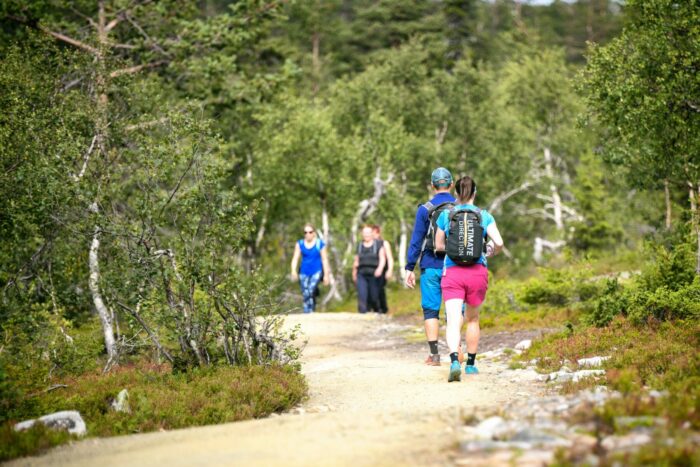
Living in Rovaniemi puts you within reach of Finnish Lapland’s numerous national parks, such as Pallas-Yllästunturi, which happens to be Finland’s most popular national park.Photo: Aku Häyrynen/Lehtikuva
Henri Wallen, who is doing his doctoral research, comes from Rovaniemi and is one of the Finnish people working at the Arctic Centre. He joined it in 2015 after finishing his studies in sociology.
“At the moment, I am mainly doing quantitative modelling and analysis for the CHARTER project,” he says. (“CHARTER” stands for CHanges in ARctic TERrestrial biodiversity.) “It’s an EU Horizon project, so it is very international by nature.”
He enjoys the international atmosphere. “People come and go and bring new ideas and different perspectives,” he says. “I guess that is one of the main reasons why things work out well.”
At the same time, Finnish staff members such as Wallen provide roots for the research efforts, since they naturally have numerous connections to the local community and culture.
By Lisa König, June 2023
Lisa König came to Rovaniemi from Germany. During spring 2023, she worked in science communications at the Arctic Centre.
